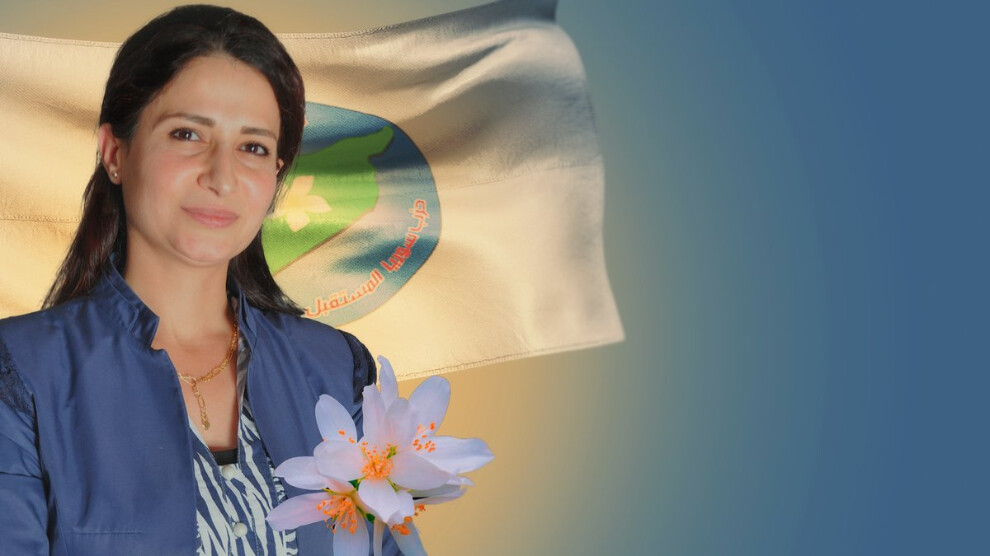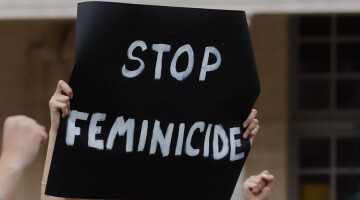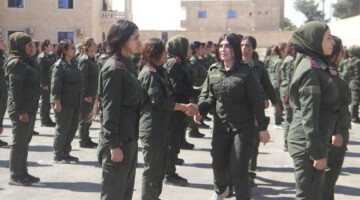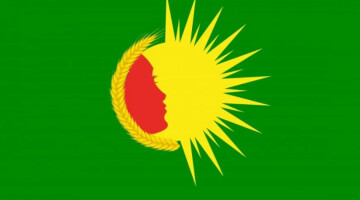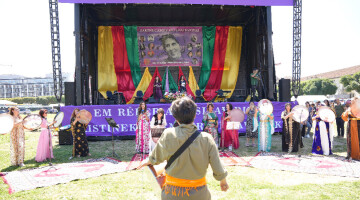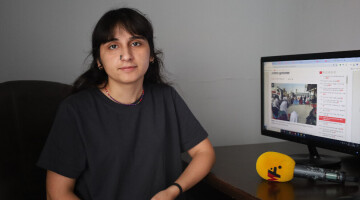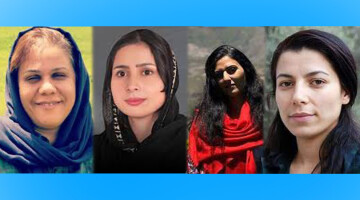Hevrîn Xelef was Secretary General of the Syrian Future Party (Hizbul Suri Mustakbel), which is guided by a grassroots democratic initiative principle. On October 12, 2019, the 34-year-old was killed along with her driver near Qamişlo as part of a war of aggression by Turkey.
Members of the so-called “123 Battalion” of “Ahrar al-Sharqiya” were responsible for the murder of Hevrîn Xelef (also spelled Hevrin Khalaf). The jihadist militia belongs to the SNA (Syrian National Army) - a coalition of reactionary, Islamist and fundamentalist militias that is paid, equipped and trained by Ankara and, as a proxy force of the Turkish NATO partner, maintains the occupation of parts of northern and northwestern Syria.
A medical report available to ANF lists numerous injuries inflicted on Xelef by the SNA jihadists. She had multiple gunshot wounds to her head, face and back and had broken bones in her face, skull and legs. Her scalp was partially peeled off because her hair had been pulled. According to the results of the autopsy, she must have still been alive when she was mutilated. Even after her death, her body was violated.
On the fourth anniversary of her murder, the Kurdish politician was remembered by Kongra Star, the women’s umbrella organisation in North-East Syria.
Kongra Star also paid tribute to Eqîde Eli Osman (Mother Eqîde), a 53-year-old woman who died in a Turkish attack on a civilian convoy heading to Serêkaniyê on 13 October, 2019. The attack resulted in 11 dead and 74 wounded.
The Kongra Star Assembly denounced the ongoing attacks on North-East Syria by the Turkish state, which, it said, employed brutal methods and banned weapons in its genocidal campaign marked by barbaric aggressions.
Kongra Star pointed out that the Turkish state committed war crimes through its forced displacement of people from Serêkaniyê, Girê Spî and Afrin, changing of the demography of the region, constant occupation and extermination attacks that also target the civilian infrastructure. The organisation said that through these attacks, the Turkish state seeks to revive ISIS, which was defeated thanks to a selfless struggle by the people and military forces of North-East Syria.
Kongra Star called on the people and women’s organisations to enhance the struggle against the genocidal campaigns and policies directed against the regions of North-East Syria.
Hevrin Khalaf
Havrin Khalaf was born in 1984 in Dêrik city in northern Syria. She grew up as a child in a socially and politically engaged family. Four of her brothers and Havrin’s sister, Zozan, joined the liberation struggle and fell in the ranks of the Kurdish freedom movement.
Her mother Sûad participated in many popular assemblies of Abdullah Öcalan. What she learned here also had a great influence on the education and personality development of Havrin. After completing her education in Dêrik, Havrin studied agronomy in Aleppo. After completing her studies, she returned to Dêrik. With the beginning of the revolution in Rojava, Havrin participated in the struggle for freedom and in the work of the youth movement. A short time later, she began organizing civil society development activities and took on senior roles in the Qamishlo Economic Council. With the proclamation of the Democratic Autonomous Administration, she took over responsibility as deputy co-chairperson of the Energy Committee of the Democratic Self-Government in the Canton of Cizîre. In 2015, she played an important role in improving and strengthening the energy supply and economic work in the canton of Cizîre.
Her work paid particular attention to the economic needs of women and the development of women's economics. In 2018, Havrin participated in the process of setting up and founding the Syrian Future Party with the aim of advocating for the interests of all Syrian population groups and a democratic renewal of Syria. At the founding of the Syrian Future Party on March 27, 2018 in Raqqa, she was selflessly committed to the task of Secretary General. Speaking on the occasion of the 8th anniversary of the popular uprising in Syria, Havrin expressed her conviction that the political crisis in Syria cannot be resolved by war. She said, "Eight years have passed. The popular uprisings against the crisis and the struggle of the peoples of Syria have been widely sacrificed and turned into a war. The ongoing crisis in Syria, which is the reason for the displacement and murder of the population, cannot be settled without a political solution.”
In each of her speeches, Havrin emphasized the importance of dialogue among the various Syrian political forces and communities. She insisted that the peoples should determine their own future and shape their own political and social life together. Through her political struggle, Havrin called on all circles of society and political actors to participate in a democratic solution to the crisis in Syria.
With the beginning of the Turkish occupation war against the territories of the Democratic Autonomous Administration in northern and eastern Syria on October 9, 2019, Havrin resolutely continued her political struggle. In an ambush by members of a jihadist killer gang allied with Turkey, she was executed.
Havrin Khalaf has played an unforgettable role in the women's revolution of Rojava and the community of peoples with her life and work. To commemorate her is to defend more resolutely than ever the women's revolution in northern and eastern Syria and to continue her sparks in all the countries of the Middle East and the world.
Eqîde Eli Osman
Eqîde Eli Osman was known for her patriotism in Girkê Legê, got involved with the Kurdish Freedom Movement in 1980.
Eqîde Eli Osman, who was actively involved in the struggle, had been arrested by the Syrian regime. Yekitiya Star (later Kongreya Star) executive member, she fell martyr on 13 October when the invading Turkish army and its mercenaries struck the civilian convoy she was traveling with.
Eqîde Elî Osman is also known for having worn black clothes since the arrest of Kurdish leader Abdullah Öcalan to the day of her martyrdom.

